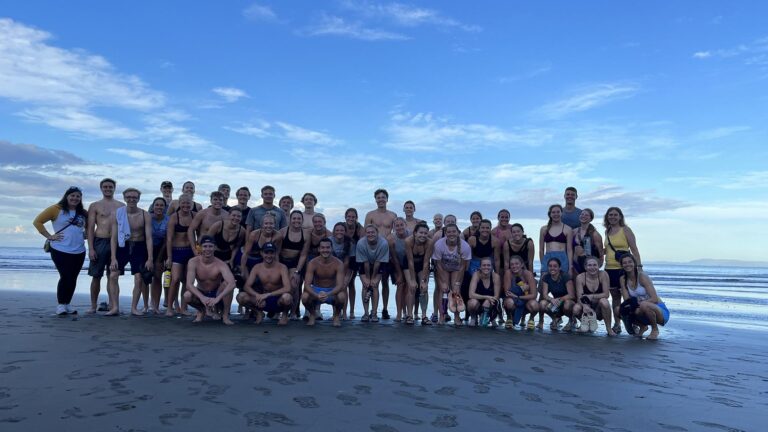Sports that require a glove include baseball, softball, hockey, and American football. These sports rely on the use of gloves to protect players’ hands and enhance their performance.

Credit: www.amazon.com
Popular Sports That Require A Glove
When it comes to sports that require a glove, there are several popular ones that come to mind. These sports not only provide an opportunity for athletes to show off their skills, but they also rely heavily on the use of a glove for catching, throwing, and fielding. In this article, we will explore the glove requirements for three popular sports: baseball, softball, and American football.
Baseball
Baseball is a classic sport that has been played for generations. Whether you’re watching a professional game or playing in a local league, a glove is essential for this sport. In baseball, the glove’s primary purpose is to help the fielders catch the ball and make accurate throws. The design of a baseball glove typically includes a deep pocket and a closed webbing, which allows players to secure the ball firmly.
When it comes to choosing a baseball glove, there are a few factors to consider. The position you play on the field will determine the type of glove that is most suitable. For example, outfielders typically prefer larger gloves with a deeper pocket to help them catch high-flying balls. In contrast, infielders often opt for smaller gloves with a shallow pocket, allowing for quick ball transfers.
Softball
Softball, a variant of baseball, is another sport that requires the use of a glove. While the overall gameplay and rules may differ slightly from baseball, the need for a glove remains the same. Softball gloves are similar in design to baseball gloves, but they are usually larger and have a shallower pocket. This design allows players to catch the larger, softer ball used in softball.
Softball gloves come in various sizes and styles, depending on the player’s preference and position. Fastpitch players often choose gloves with a closed webbing, as it provides a better grip on the ball during pitching. On the other hand, slowpitch players may opt for open-webbed gloves, which allow for a quicker release of the ball.
American Football
American Football is a dynamic and physically demanding sport that requires intense hand-eye coordination. While players primarily use their hands to catch the football, wearing a glove enhances their grip and protects their hands during gameplay. Football gloves are designed with tacky material on the palm and fingers, providing a better grip on the ball.
When selecting football gloves, players consider factors such as fit, grip, and durability. Wide receivers and defensive backs tend to prefer gloves with a thinner material, as it allows for a better feel and control of the ball. Linemen, on the other hand, opt for gloves with added padding and grip to protect their hands during contact.
| Baseball | Softball | American Football | |
|---|---|---|---|
| Primary Purpose | To catch and field the ball | To catch the larger, softer ball used in the game | To enhance grip and protect hands during gameplay |
| Design | Deep pocket and closed webbing | Larger size, shallower pocket | Tacky material on palm and fingers |
| Preferred Position | Infielders, outfielders, pitchers, catchers | Pitchers, infielders, outfielders | Wide receivers, defensive backs, linemen |
In conclusion, whether you’re playing baseball, softball, or American football, having the right glove is crucial for success on the field. Understanding the requirements and preferences of each sport will help you choose the perfect glove for your position and playing style. So get out there, put on your glove, and show the world what you’re capable of!

Credit: issuu.com
Benefits Of Using Gloves In Sports
Sports that require a glove provide numerous benefits for athletes. Whether it’s baseball, football, hockey, or even gardening, using gloves can greatly enhance performance and protect against potential injuries. In this article, we will explore the advantages of using gloves in sports and how they can improve grip and control, provide protection from injuries, and enhance overall performance.
Improved Grip And Control
A key benefit of using gloves in sports is the improved grip and control they offer. Gloves are designed with specialized materials that provide enhanced friction between the hand and the objects being handled. This increased friction results in a tighter and more secure grip, allowing athletes to have better control over their movements and their gear.
The use of gloves also helps prevent the hands from becoming sweaty, which can often lead to slippery grips. With gloves, athletes can maintain a firm hold on their equipment, such as a baseball bat or a football, even in challenging weather conditions and intense situations on the field.
Protection From Injuries
The second significant advantage of using gloves in sports is the protection they provide against injuries. Depending on the sport, hands and fingers are exposed to various risks, including cuts, bruises, blisters, and even fractures. Gloves act as a protective barrier between the skin and potential hazards.
In sports like boxing or hockey, where impacts and contact are frequent, gloves with padded interiors offer cushioning to lessen the force of blows and reduce the risk of serious hand injuries. In addition, gloves can also protect against outdoor elements such as thorns, sharp rocks, and extreme temperatures, keeping hands safe and comfortable during outdoor activities.
Enhanced Performance
Lastly, the use of gloves in sports can significantly enhance an athlete’s performance. By providing a better grip and protection, gloves allow athletes to focus solely on their techniques and strategies, without worrying about potential slips or hand injuries. This enhanced performance can contribute to better accuracy, faster reaction times, and overall improved efficiency in the chosen sport.
Furthermore, gloves can also improve hand dexterity and flexibility. Certain sports require intricate hand movements and precise control, like gardening or golfing. The specially designed gloves for these activities often have reinforced fingers and palms to provide both protection and flexibility, enabling athletes to perform complex maneuvers with ease.
In conclusion, using gloves in sports offers numerous benefits, including improved grip and control, protection from injuries, and enhanced performance. Whether you’re a professional athlete or a recreational enthusiast, investing in a quality pair of gloves tailored to your sport can make a significant difference in your overall experience and success.
Choosing The Right Glove For Your Sport
Selecting the right glove for your sport is crucial for optimal performance and protection. Different sports have unique requirements when it comes to gloves, both in terms of design and functionality. By considering these aspects, including the sport’s specific requirements, proper fit and comfort, as well as quality and durability, you can make an informed choice and enhance your performance on the field or court.
Consider The Sport’s Requirements
Each sport has its own set of requirements for gloves, based on the nature of the game and the specific actions involved. For example, if you are playing baseball, you need a glove specifically designed for catching and fielding, with a deep pocket and closed webbing to secure the ball. In contrast, for sports like football, lacrosse, or hockey, gloves with extra padding and protection are necessary to shield your hands from impact and potential injuries. Understanding the requirements of your sport will help you narrow down your options and find a glove that caters to your needs.
Proper Fit And Comfort
The fit of your glove is paramount to your performance and overall comfort during gameplay. Ill-fitting gloves can hinder your dexterity and restrict movement, which can impact your ability to catch, throw, or grip. When choosing a glove, consider the size and shape of your hand, ensuring that it provides a snug fit without being too tight or restrictive. Pay attention to the finger stalls, wrist closure, and overall flexibility of the glove to ensure it allows for natural movement. Additionally, look for gloves with moisture-wicking materials and proper ventilation to keep your hands dry and comfortable throughout the game.
Quality And Durability
Investing in a high-quality and durable glove is vital for longevity and performance. Look for gloves made from premium materials that offer durability and resilience against wear and tear. Reinforced stitching, sturdy closures, and reinforced finger stalls can contribute to a long-lasting glove that can withstand the demands of your sport. While quality gloves may come at a higher price point, they offer better protection and ensure that you won’t have to replace your glove frequently, saving you money in the long run.
Choosing the right glove for your sport requires careful consideration of the sport’s requirements, proper fit and comfort, as well as quality and durability. By focusing on these factors, you can select a glove that enhances your performance, provides optimal protection, and allows you to excel in your chosen sport.
Care And Maintenance Of Sports Gloves
Sports gloves are essential equipment for many sports activities. They not only provide protection for your hands but also enhance your performance. To ensure that your sports gloves stay in top condition and last longer, proper care and maintenance are crucial. In this article, we’ll discuss the cleaning, drying, and storage of sports gloves, giving you all the information you need to keep them in great shape.
Cleaning
Regularly cleaning your sports gloves is important to remove dirt, sweat, and odor buildup. Depending on the material of your gloves, the cleaning process may vary. Here are some general guidelines to help you clean your sports gloves:
- Gently wipe the surface of the gloves with a damp cloth to remove any dirt or debris.
- If your gloves are made of leather, use a leather cleaner or mild soap mixed with water to clean them. Be sure to follow the manufacturer’s instructions and test the cleaner on a small, inconspicuous area first.
- For gloves made of synthetic materials, you can use a mild detergent mixed with water. Avoid using harsh chemicals that may damage the material.
- After cleaning, rinse the gloves with clean water to remove any soap residue.
- Do not soak the gloves or put them in the washing machine, as this can cause damage.
Drying
Proper drying is essential to prevent mold and mildew growth and to maintain the shape of your sports gloves. Here are some tips for drying your gloves:
- Gently squeeze out any excess water from the gloves.
- Place the gloves in a well-ventilated area away from direct heat or sunlight to dry naturally.
- Avoid using a hairdryer or any other heat source, as this can damage the material.
- To help maintain the shape, you can stuff the gloves with paper towels or a soft cloth while they dry.
- Allow the gloves to dry completely before using them again.
Storage
Proper storage of your sports gloves is crucial to prevent damage and maintain their quality. Follow these guidelines for storing your gloves:
- Make sure your gloves are clean and dry before storing them.
- Avoid storing the gloves in a humid or damp environment, as this can promote mold and mildew growth.
- Store your gloves away from direct sunlight, as prolonged exposure can fade the color and weaken the material.
- Avoid placing heavy objects on top of the gloves, as this can deform their shape.
- If possible, use a glove bag or a breathable cloth bag to protect the gloves from dust and dirt.
- Regularly check your gloves for any signs of damage or wear and replace them if necessary.
By following these care and maintenance tips, you can extend the lifespan of your sports gloves and ensure that they continue to perform at their best. Remember, proper cleaning, drying, and storage are essential for keeping your gloves in top condition, so invest the time to take care of them properly.
:max_bytes(150000):strip_icc()/update-tl-best-heated-products-tout-0851e5b95dd94aa2b94440f38c149e8c.jpg)
Credit: www.travelandleisure.com
Do Sports That Require a Jockstrap Also Benefit from Gloves for Enhanced Performance?
Sports such as baseball or football not only demand protection like jockstraps but also emphasize performance tools like gloves for better grip and precision. For those curious, “sports requiring a jockstrap explained” are typically high-impact activities where safety and equipment like gloves work together to optimize both comfort and athletic performance.
Frequently Asked Questions On Sports That Require A Glove
What Sports Require A Glove?
Sports such as baseball, softball, and hockey require gloves to protect the players’ hands and improve performance. A glove provides a better grip, enhances catching and throwing ability, and helps prevent injuries during gameplay.
Do All Players Need A Glove In Baseball?
In baseball, all players except the catcher need a glove. Gloves for infielders are smaller and more flexible, allowing
greater control and quick transfers. Outfielders require larger gloves for catching fly balls, while pitchers and
first basemen use specialized gloves designed for their positions.
Can You Play Softball Without A Glove?
In recreational settings or casual games, playing softball without a glove is allowed. However, at competitive levels
and in professional leagues, players are required to use gloves. A glove provides necessary protection and improves the
player’s ability to catch and handle the ball effectively.
Should Beginners Invest In An Expensive Glove For Softball?
For beginners in softball, investing in an expensive glove may not be necessary. Starting with a reasonably priced glove
that fits well and provides adequate protection is more important. As skills improve, players can upgrade to a more
specialized and higher-quality glove suited to their position and playing level.
Conclusion
To sum up, a glove is an essential piece of equipment for various sports, ensuring the safety and performance of the players. From baseball and softball to hockey and boxing, these sports demand the use of gloves to enhance grip, protect hands, and prevent injuries.
By investing in the right glove and understanding its purpose, athletes can excel in their chosen sport and achieve their full potential.



